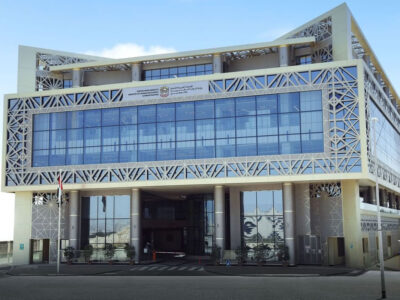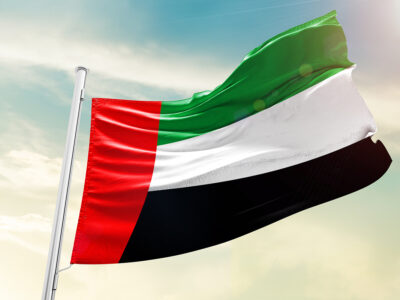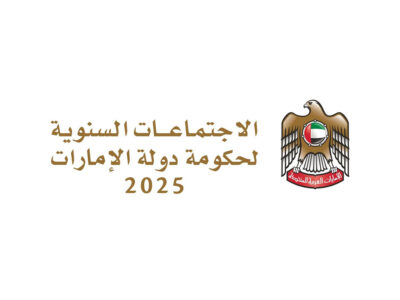Art, sports and sustainability are among the key focus areas for the Royal Commission of Riyadh City’s four megaprojects set to enhance the capital of Saudi Arabia’s livability.
Announced by King Salman bin Abdulaziz Al Saud in 2019, under the supervision of the Committee of Grand Projects chaired by the Crown Prince Mohammed bin Salman bin Abdulaziz, Deputy Prime Minister and Minister of Defense, the projects are aimed at improving the quality of life in Riyadh and are in line with Saudi’s Vision 2030 and its goal to become one of the world’s top 10 global economies, said Hosam Alqurashi, senior advisor to the Royal Commission of Riyadh City.
“Saudi Arabia is the largest economy in the GCC and we are doing all of these projects for it to become more competitive. We are improving our ease of doing business with attractive regional headquarters, we’re improving our trade laws and we’re launching special economic zones, for example,” said Alqurashi.
“All in all, these are going to make the city more competitive in its fight for three very scarce resources: investors, tourists, and talent. All cities of the world are fighting for these three and the only way to win is to significantly improve your quality of life and your offering and be a competitive city that can truly provide a beautiful experience for the people living in it,” he continued.
 Hosam Alqurashi, senior advisor to the Royal Commission of Riyadh City.
Hosam Alqurashi, senior advisor to the Royal Commission of Riyadh City.
Bringing art to the capital
One of the four projects, Riyadh Art will launch its inaugural exhibition Noor Riyadh, an annual festival of lights and art featuring 60 artists from 20 countries, starting Thursday.
“This is one of many projects tackling the quality of life in Saudi Arabia. One of the loveliest means to significantly beautify a city are creative expressions spread across it for everyone to access and learn from. It’s a driver of quality of life that we think is very, very important on a cultural and social level,” said Alqurashi.
Noor Riyadh and the other yet to be announced events by Riyadh Art, have an economic value in addition to their cultural and humanitarian attributes, explained Alqurashi.
“Art is also beneficial for the country on an economic level because you’re developing a creative economy which did not exist at the scale that Riyadh Art is trying to bring into the country,” said Alqurashi.
“This economy is going to allow exhibitions and the selling of art pieces to the world. It also involves citizen engagement programs and teaching art in schools. So art is not just something we’re treating as temporary; we want to integrate it into the fabric of the society, the educational system and the day to day lives of Saudi citizens,” he continued.
Walking the talk, 40 percent of the exhibitors in Noor Riyadh are Saudi and Alqurashi said this is just the beginning of the Commission’s intention of investing in and nurturing local talent.
“Local Saudi talent is abundant but undiscovered, un-nurtured and unguided, to some extent. We’re trying to create an art ecosystem that embraces these talents, truly trains them, shows their work to the world and links them to mentoring programs with international artists and galleries,” said Alqurashi.
“So we don’t just want to be consuming arts, we want to be creating a system that generates art and eventually exports it to the rest of the world,” he continued.
Introducing green spaces
The three other projects the commission are working on, and which will be rolled out at varying stages between this year and 2030 are Green Riyadh, King Salman Park and the Sports Boulevard.
Green Riyadh, one of the largest tree plantation initiatives in the world, involves having a tree for every citizen or 7.5 million trees planted in Riyadh by 2030, all irrigated by recycled water.
“We want to increase the green mass across the city because that helps creates a barrier against storms and reduces the temperature in the city by around 2.5 to 3 degrees [Celsius] so there is a sustainability angle to this project as well,” explained Alqurashi.
King Salman Park, four times the size of London’s Hyde Park, will hold a botanical garden, a royal complex of arts, entertainment facilities and public play areas for children while the Sports Boulevard will host mass sports performances and give the public free access to 140 kilometres of sports facilities.
Although not one of the four projects, Alqurashi outlined plans for a metro system in Riyadh which will be the 13th largest public transportation network in the world with 84 stations, six lines and cover more than 1,800 kilometres.
“When His Royal Highness announced, during the Future Investment Initiative, a plan for Riyadh to become one of the top 10 city economies globally, it meant that we’re going to be growing to nearly triple our economy. This means we are looking to expand our infrastructure and services to accommodate the flux of talent that we’re trying to attract to the city,” explained Alqurashi.
“This means that Riyadh needs to be competitive on so many levels. These programmes particularly serve the quality of life component which is a critical enabler for driving intent to come live and work in the city or to visit and even invest it,” said Alqurashi.








